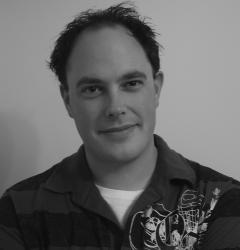Sift through the rubbish to find the gold

We welcome to the AussieTheatre.com team Drew Lane! (composer, pianist and musical theatre enthusiast)
Drew will bring you his thoughts on the industry in his new column: Musical Musings
I don’t proclaim to know everything about writing musicals. I’m still a student of the art form. Every new musical I see teaches me something, and every new musical I write teaches me something too. You have to keep learning, because the moment you stop is the moment you start going backwards. However, it occurred to me the other day that I’ve been attempting to write musical theatre for some 20 years. And I figure that gives me some props to talk about what I do. It doesn’t mean that I’ll always be right, and I reserve the right to be totally horridly, shockingly and stupefyingly wrong. Yet, here I am, and here you are dear reader, and I thank you for reading.
As I look back on the last 20 years (damn, that really does sound like a very long time), I reckon there’s one lesson that I’ve learned the most out of it all; apart from, of course, what I wrote earlier – always be a student, keep learning. The lesson? Simple. To get to the good stuff you have to get through the rubbish first. (Okay, okay; yes, I’d say it a little differently, but seeing this is my first column for AussieTheatre.com.au, I’d better play it safe … Well, until I know the boundaries a little better! But I digress …)
To get to the good stuff, you have to get through the rubbish first. It’s a bit like the old “Before you can learn to walk, you have to learn how to crawl” adage, and hundreds other like it. It’s nothing new or groundbreaking, but it’s important nonetheless. When I look back on the musicals I’ve written since that first piece of spam Back Streets, I can see how I’ve improved with each new musical. The ideas are better, the construct improves, the music and lyrics are tighter and better formed, and the whole way it plays out on stage is more appropriate.
I remember a friend and I formed a band in high school called Off The Wall (no, not inspired by anything Michael Jackson related). We decided one long weekend to write a batch of songs and record them in his bedroom using an acoustic guitar, an electric guitar, a keyboard, a piano, and a cassette recorder. Genius! We’d bang out a tapes’ worth of music in a weekend and go on the road. Brilliant! Well, maybe not so. Especially when you’re still learning how to write a song or, in our case, how not to write a song! One of our songs opened with the line:
“There are people tryin’ to blow us up/With nuclear arms.”
Cough, cough. Not exactly full of subtlety, is it? Our problem was twofold;
1) we didn’t realize how truly bad that opening line was, and
2) we were struggling to find a decent rhyme for ‘arms’. But then, a flash of inspiration?
“They don’t care about the people out there/Living on cities and farms.”
Oh dear. Oh deary me. Yes, you need to get through that sort of writing to get to the good writing. But why? But does there have to be a learning curve to writing anything, let alone songs, let alone a musical?
1 – It’s your mistakes that teach you what doesn’t work.
If you don’t make your mistakes your way, then all you are doing is learning what not to do third hand. There’s a heap of “how-to” books on songwriting, and it’s good and well to read them, but until you start writing songs yourself, and you make the mistakes only you can make, then you won’t really learn anything about the craft. Billy Joel has said that “your mistakes are the only thing you can truly call your own”. So, make them!
2 – You can’t learn what’s good unless you learn what’s not.
I remember when I started writing songs and musicals, I thought everything I wrote was gold. I was excited to be able to put together a song, or drag a group of songs into some strangely cobbled together storyline. Don’t get me wrong, that excitement is good and justified; you’re doing something that a lot of people can’t. But after a little time, and a little more writing, you need to be able to see those early pieces as works-in-progress or personal development. They’re not your end result. They are the stepping stones to where you are eventually going to reach. Dorothy never saw the yellow brick road as the destination; it was the means of getting to the Emerald City. And even then, that wasn’t her means to get home.
3 – You have to realise that you’re not perfect.
It’s a strange thing really, that creative people tend to believe that everything they do is perfect; that their creation has a reason to exist and a reason to have been created. Not true. Well, maybe the reason it was created what to help you discover that you’re not perfect. In that case, it would be true.
Confused yet? Good.
Look, everything that we write or paint or compose has a part of us in it. The songs, the musicals, the text, the art; they’re all our “babies”, and as a “parent”, we want to protect them; and so we should. But we also have to learn that there are flaws; errors in the work that are either too big to fix, need tweaking, or just are part of the tapestry of our art. A band doesn’t release every song they’ve written. A writer doesn’t publish every work they write. Not everything that Mozart composed was brilliant. And everything – everything – has room to be improved. Even those things that we think are “finished”. Why? Because we’re not perfect. Sure, we’re capable of brilliance, but we have to understand that even brilliance takes work, effort, sweat, tears, and a hell of a lot of luck.
4 – Your best is yet to come.
Cliche alert! But true. What you write today will, in a week or a month or a year, pale in comparison to what you write then. You’ll see your own growth. Your life experiences will dictate the changes in your works. The people you meet and the places you go (hello Dr. Seuss!) will inform what you write about next. As you grow, so will your writing. Your best is still to come, and even when you think you’ve written it, there’ll be something even better around the corner!
I hope you’ve enjoyed reading my column. Please feel free to leave comments for me to read and respond to!
So, until next time,
Blog ya later!
Drew.

